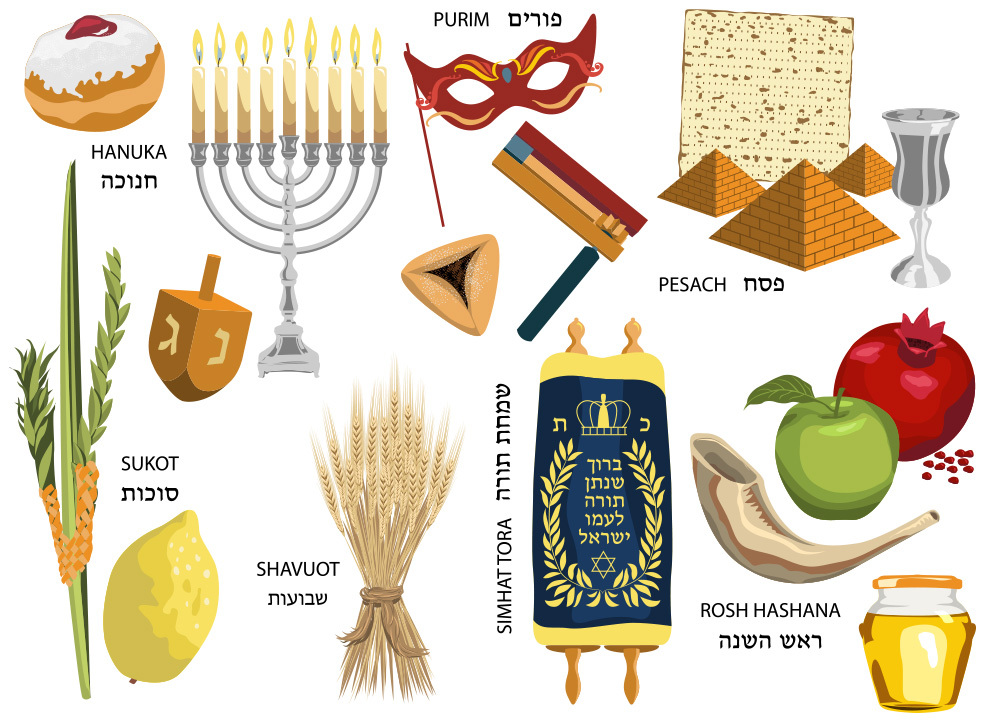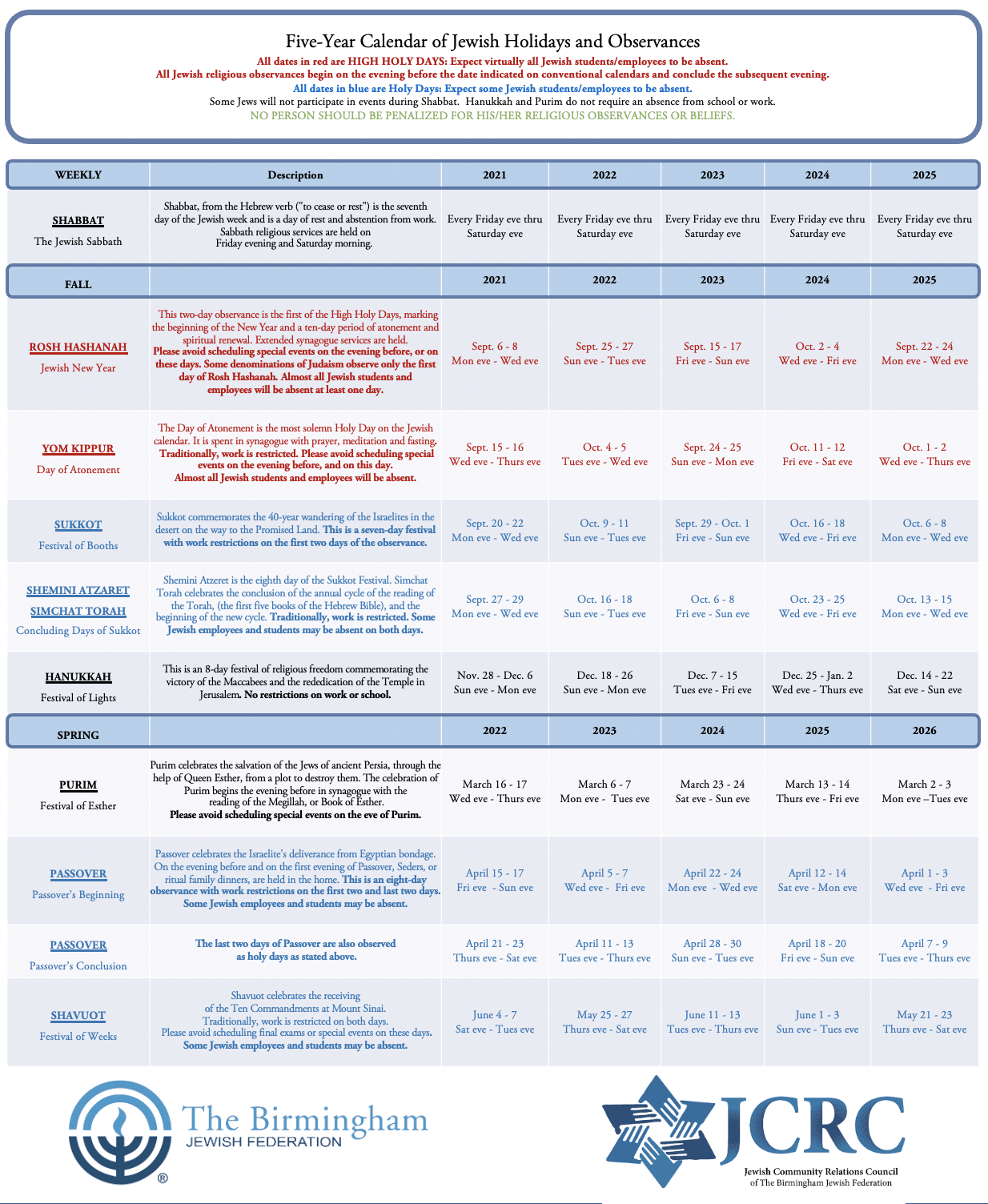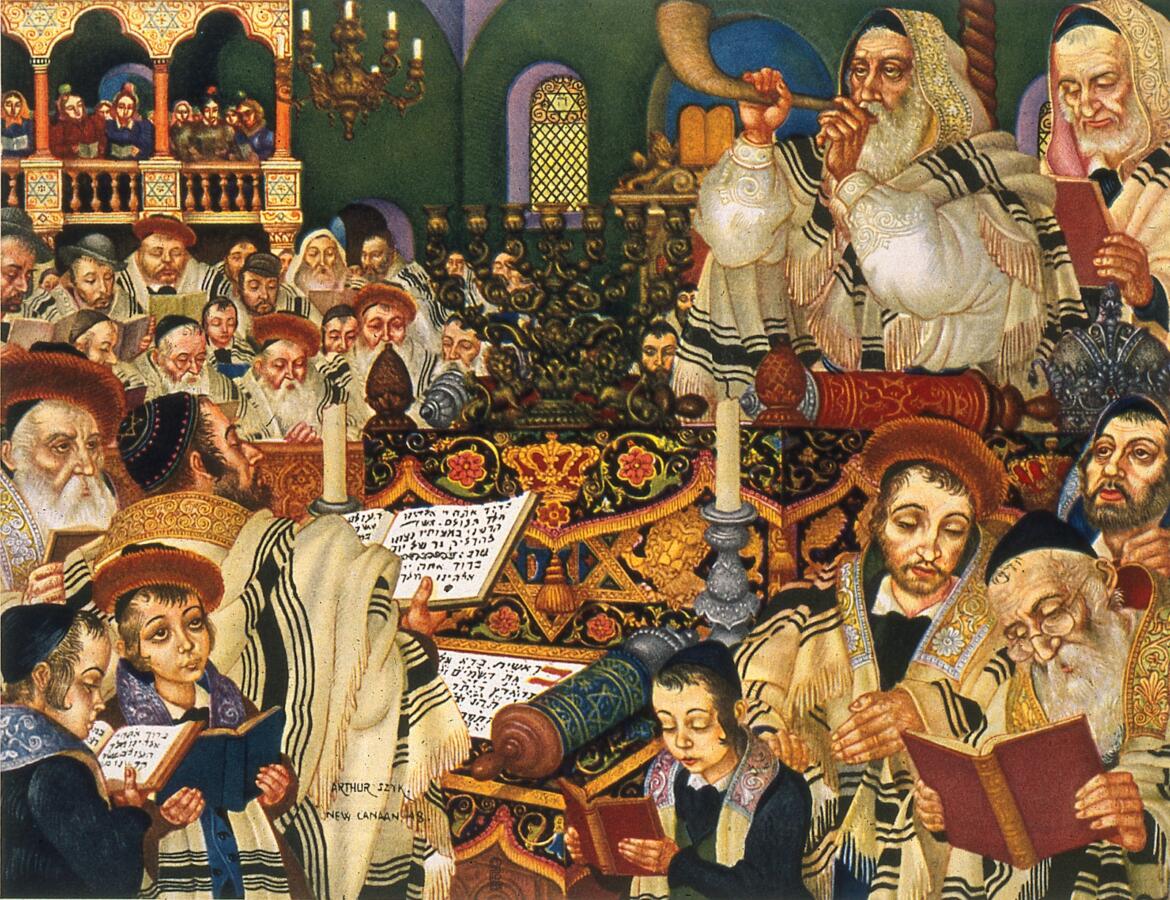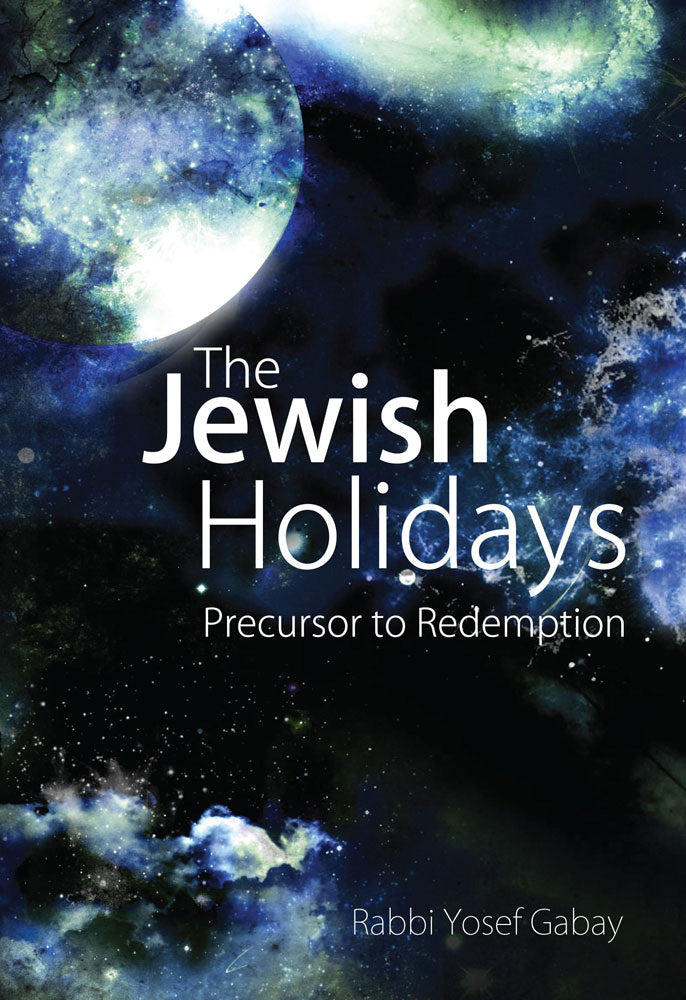A Comprehensive Guide To Jewish Holidays In 2025
A Comprehensive Guide to Jewish Holidays in 2025
Related Articles: A Comprehensive Guide to Jewish Holidays in 2025
Introduction
With enthusiasm, let’s navigate through the intriguing topic related to A Comprehensive Guide to Jewish Holidays in 2025. Let’s weave interesting information and offer fresh perspectives to the readers.
Table of Content
A Comprehensive Guide to Jewish Holidays in 2025

The Jewish calendar is a tapestry woven with vibrant traditions and observances, each holiday offering unique opportunities for reflection, celebration, and connection. This guide provides a detailed overview of Jewish holidays in 2025, outlining their significance, practices, and dates.
High Holidays
-
Rosh Hashanah (New Year): This two-day holiday, commencing on September 15, 2025, marks the beginning of the Jewish New Year. It is a time for introspection, repentance, and asking forgiveness for past transgressions. Key practices include blowing the shofar (ram’s horn), reciting special prayers, and enjoying traditional foods like apples and honey.
-
Yom Kippur (Day of Atonement): Following Rosh Hashanah, Yom Kippur, observed on September 24, 2025, is a day of complete fasting and intense prayer. It is dedicated to seeking forgiveness from God and others, and achieving spiritual renewal. Observances include attending synagogue services, abstaining from food and drink, and engaging in acts of charity.
Sukkot (Feast of Tabernacles)
-
Sukkot: Celebrated for seven days, from October 1, 2025, to October 8, 2025, Sukkot commemorates the Israelites’ journey through the desert after their exodus from Egypt. The central tradition is constructing a sukkah, a temporary hut, and dwelling in it during the festival. The sukkah symbolizes the Israelites’ vulnerability and dependence on God’s protection.
-
Shemini Atzeret (Eighth Day): This single-day holiday, observed on October 8, 2025, immediately follows Sukkot. It is a day of rejoicing and thanking God for the harvest.
-
Simchat Torah (Rejoicing with the Torah): This joyous celebration, also observed on October 8, 2025, concludes the annual cycle of Torah readings. It is marked by dancing, singing, and reading the Torah.
Other Major Holidays
-
Hanukkah (Festival of Lights): This eight-day festival, beginning on December 12, 2025, commemorates the rededication of the Second Temple in Jerusalem. The central tradition is lighting the menorah, a nine-branched candelabrum, with one candle lit each night. Other practices include enjoying fried foods, playing dreidel, and giving gifts.
-
Purim (Festival of Lots): Observed on March 1, 2025, Purim celebrates the deliverance of the Jewish people from the evil plot of Haman, as recounted in the Book of Esther. Key traditions include reading the Megillah (Scroll of Esther), dressing in costumes, giving gifts of food and drink, and enjoying a festive meal.
-
Passover (Festival of Freedom): This eight-day festival, starting on April 8, 2025, commemorates the Israelites’ exodus from Egypt. The central tradition is the Seder, a festive meal where the story of the exodus is recounted. Other practices include eating matzah (unleavened bread), abstaining from all leavened products, and participating in symbolic rituals.
Minor Holidays and Observances
-
Tu B’Shevat (New Year for Trees): This day, observed on January 23, 2025, is a time to appreciate the bounty of nature and the importance of trees. It is often celebrated by planting trees and eating fruits.
-
Lag B’Omer (Thirty-Third Day of the Omer): Observed on May 11, 2025, Lag B’Omer marks the end of a period of mourning and is celebrated with bonfires, picnics, and archery.
-
Tisha B’Av (Ninth of Av): This day of fasting and mourning, observed on July 17, 2025, commemorates the destruction of the First and Second Temples in Jerusalem.
Importance and Benefits
Jewish holidays serve a multifaceted purpose. They provide opportunities for:
-
Connecting with Heritage: Holidays serve as a tangible link to the rich history and traditions of the Jewish people.
-
Strengthening Community: Shared celebrations and observances foster a sense of community and belonging.
-
Spiritual Growth: Holidays offer opportunities for reflection, introspection, and spiritual renewal.
-
Family Bonding: Holidays are often celebrated with family and friends, creating lasting memories and strengthening relationships.
-
Giving Back: Many holidays emphasize acts of charity and kindness, promoting social responsibility.
FAQs
1. How is the Jewish calendar different from the Gregorian calendar?
The Jewish calendar is a lunisolar calendar, meaning it is based on both the lunar cycle and the solar year. This results in a calendar that is different from the Gregorian calendar, which is solely solar.
2. How are Jewish holidays determined?
Jewish holidays are determined by the Jewish calendar, which is based on the cycles of the moon and sun.
3. Do all Jewish people observe all holidays in the same way?
Jewish observance varies depending on individual and community practices. While there are core traditions, there is room for personal interpretation and adaptation.
4. What are some common Jewish holiday foods?
Jewish holiday foods are often symbolic and represent the themes of the holiday. Some examples include:
- Rosh Hashanah: Apples and honey (for a sweet New Year), challah (bread), and round challah (symbolizing the cycle of life).
- Yom Kippur: Fasting is observed throughout the day.
- Sukkot: Foods are eaten in the sukkah, such as fruits, vegetables, and nuts.
- Hanukkah: Latkes (potato pancakes) and sufganiyot (jelly doughnuts).
- Purim: Hamantaschen (triangular pastries filled with fruit or poppy seeds).
- Passover: Matzah (unleavened bread), gefilte fish, and charoset (a sweet paste representing the mortar used by the Israelites in Egypt).
Tips for Observing Jewish Holidays
- Learn about the holiday’s significance: Understanding the history and meaning behind the holiday enhances its meaning and personal connection.
- Attend synagogue services: Synagogue services offer a communal experience and provide insights into the holiday’s significance.
- Participate in traditional practices: Engage in the customs and traditions associated with the holiday to deepen its meaning.
- Share the experience with others: Celebrate with family and friends, fostering a sense of community and shared experience.
- Give back to the community: Many holidays encourage acts of charity and kindness, providing opportunities for social responsibility.
Conclusion
Jewish holidays are a vital part of Jewish life, offering opportunities for spiritual growth, cultural connection, and community building. By understanding the significance and practices of each holiday, individuals can deepen their connection to their heritage and celebrate the rich tapestry of Jewish tradition.








Closure
Thus, we hope this article has provided valuable insights into A Comprehensive Guide to Jewish Holidays in 2025. We thank you for taking the time to read this article. See you in our next article!